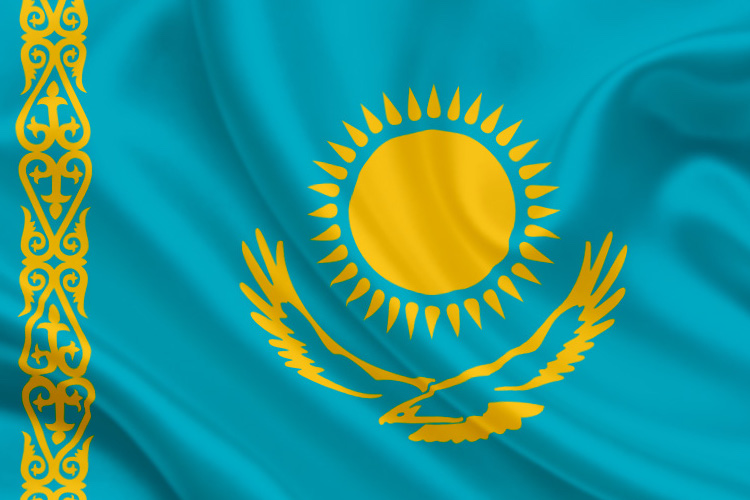
Apr 11, 2019 | Advocacy
Today the ICJ joined twenty organizations in calling for Myanmar’s new Constitutional Amendment Committee to fully protect the right to freedom of expression in the Constitution, in line with international law and standards including Article 19 of the International Covenant on Civil and Political Rights.
The statement reads:
“20 expert organisations urge Myanmar to fully guarantee the internationally protected right to freedom of expression in the Constitution
11 April 2019 — A new parliamentary committee tasked with reviewing Myanmar’s constitution is an opportunity for the government to guarantee the democratic rights to free expression, media freedom, and access to information.
We welcome the government’s creation of the Constitutional Amendment Committee, established to review and propose amendments that will support Myanmar’s transition to democracy.
Myanmar’s 2008 Constitution does not include the guarantees required in a democracy to protect freedom of expression. Those that it does include do not meet relevant international human rights standards. This threatens the transition to and quality of Myanmar’s democracy as can be seen for example in the wide range of laws used to prosecute journalists and human rights defenders.
We call on the Constitutional Amendment Committee to recommend:
- Replacement of the current heavily prescribed guarantee for freedom of expression in Articles 354(a) and 365 with a single article that guarantees the right to freedom of expression in accordance with international standards, so that it fully reflects the requirements of Article 19 of the International Covenant on Civil and Political Rights.
- A new separate article guaranteeing the right to access information held by public authorities.
- A new separate article guaranteeing media freedom, which should prohibit prior censorship of the media or licensing of the print media and individual journalists, and should protect journalism as well as the independence of the Myanmar Press Council, Myanmar Broadcasting Council, and any future public service media.
- Each guarantee should include only those limitations that are provided by law and are necessary for the respect of the rights or reputations of others, or for the protection of national security or of public order, or of public health or morals.
We are committed to supporting Myanmar’s transition to democracy and would be happy to provide further information and guidance as the Committee conducts its review.”
Signed by 20 organizations with the support of 13 other organizations.
Full statement and list of organizations available in English and Burmese here: Myanmar-Joint Statement on FoE and Const Ref-Advocacy-2019-BUR

Apr 4, 2019 | News
Today, the ICJ urged Singapore’s Parliament not to pass the Protection from Online Falsehoods and Manipulation Bill 2019 (‘Online Falsehoods Bill’), which was tabled on Monday, 1 April.
The ICJ said that the bill, if passed into law, would result in far-reaching limitations on freedom of expression, opinion and information in Singapore, and could be wielded to curtail important discussion of matters of public interest, including content critical of the government.
“This bill, if passed, would make the government the sole arbiter of what information is permissible online and what is not, creating a real risk that the law will be misused to clamp down on opinions or information critical of the government,” said Frederick Rawski, ICJ Director for Asia and the Pacific.
The bill authorizes ministers to direct individuals, owners or operators of online platforms, digital advertising and internet intermediaries to remove, make corrections to, disable or block access to a “false statement of fact”, if such action is deemed to be “in the public interest”. Such ministerial directions can be made even if a false statement “has been amended or has ceased to be communicated in Singapore”.
The bill does not provide any real definition of “false statement of fact” and does not clarify what constitutes “public interest”. The bill also fails to provide for exceptions or defences such as honest mistake, parody, artistic merit, or public interest. Executive discretion is also not subject to judicial review or oversight under its provisions.
Criminal penalties for non-compliance with the law are severe, and include hefty fines and up to ten years’ imprisonment for violations.
These may be imposed on individuals and/or owners or operators of online platforms, as well as intermediaries who facilitate the communication of such statements, including social networking services, search engine services, internet-based messaging services and video-sharing services.
The bill is also clear that communications through SMS (Short Message Service) and MMS (Multimedia Messaging Service) fall under its remit.
“The spread of misinformation online is a complex problem that cannot be effectively addressed by simply granting broad discretion to government officials to censor online expression,” said Rawski.
“A multi-pronged approach that protects the rights to free expression, opinion and information is required, beginning with better media literacy education and free access to information, including to opinions critical of the government,” he added.
Contact
Frederick Rawski, ICJ Asia Pacific Regional Director (Bangkok), e: frederick.rawski(a)icj.org
Singapore-fake news bill-News-web story-2019-ENG (full story with additional information, in PDF)

Mar 28, 2019 | Advocacy, Non-legal submissions
Today, the ICJ filed a submission to the Human Rights Council’s Working Group on the Universal Periodic Review in advance of its review of Kazakhstan’s human rights record in October-November 2019.
In its submission, the ICJ considered the situation with the independence of the legal profession in Kazakhstan and provided information on the status of international human rights treaties ratified by Kazakhstan.
The ICJ called on the Human Rights Council and the Working Group to recommend Kazakhstan:
• to amend the current legislation to ensure that representatives of the executive, such as the Ministry of Justice, are not included in the disciplinary bodies of the legal profession;
• to amend the current legislation to ensure that the qualification procedures are fully governed by the legal profession in Kazakhstan in line with international law and standards on the role of lawyers; in particular, the Qualification Commissions should be bodies of the Bar Association while their composition should predominantly consist of lawyers delegated by the Bar Association itself;
• to ensure that as the main stakeholder in any reforms affecting the legal profession, the Bar Association participates in such reforms in a meaningful way;
• to take effective measures to prevent further interference by the executive and law enforcement bodies in the exercise of lawyers’ professional duties, in particular prevent the practice of bringing disciplinary complaints against lawyers solely for their defence of their clients or legitimate exercise of their right of freedom of expression;
• to ensure that the right of lawyers to freedom of expression is respected, especially in regard to matters of public interest and law.
Furthermore the ICJ suggested:
• To ratify the Agreement on the Privileges and Immunities of the International Criminal Court.
• To ratify the Optional Protocol to the Covenant on Economic Social and Cultural Rights and International Convention on the Protection of the Rights of All Migrant Workers and Members of their Families as well as the Second Optional Protocol to the International Covenant on civil and Political Rights.
Kazakhstan-ICJ UPR 2019-Advocacy-Non legal submissions-2019-ENG (full text of submission, in PDF)

Mar 15, 2019 | News
The ICJ called on the Government of Malaysia to take immediate steps to protect the right of all persons in the country to freedom of expression and assembly, after seven organizers of the International Women’ Day (IWD) March were summoned for questioning by police authorities on 14 March 2019.
“It is very concerning that the Malaysian authorities continue to rely on repressive legislation to control and undermine freedom of expression and freedom of assembly in the country,” said Emerlynne Gil, ICJ’s Senior International Legal Adviser.
The Women’s March took place in Kuala Lumpur, on 9 March 2019. The demands of the participating groups included an ‘end of all violence based on gender and sexual orientation’, the ban of all child marriages, and the setting of RM1,800 as a minimum wage.
A statement by the Dang Wangi District Police Deputy Chief identified the organizers as individuals who had spoken at an ‘LGBT’ rally.
There were reportedly taken in for questioning on 18 March for potential violations of Section 4(1) of the Sedition Act and Section 9(5) of the Peaceful Assembly Act. They remain at risk of being charged for these offences.
The ICJ considers the Sedition Act 1948 and the Peaceful Assembly Act 2012 to be incompatible with international standards. The ICJ has previously called on the Government of Malaysia to abolish both laws, which have historically been used to silence voices of those challenging governmental policy.
The laws place restrictions on the exercise of freedom of expression that are overbroad, unnecessary and disproportionate, and inconsistent with rule of law and human rights principles. The Pakatan Harapan Government committed itself to abolishing the Sedition Act 1948 and the Peaceful Assembly Act 2012, but has not done so to date.
“The vague definition of ‘seditious tendencies’ in the Sedition Act has been used as a tool for silencing government critics and human rights defenders by previous administrations. It is disappointing that the Malaysian authorities have ended the moratorium on the use of the Sedition Act 1948, and continue to use it, instead of moving towards its abolition,” said Gil.
According to international standards, any limits on the right to peaceful assembly should not require prior authorization by the authorities. Notification requirements must not be unduly bureaucratic and be used only for the purpose of allowing the authorities to facilitate the exercise of the right to peaceful assembly, and to protect public safety.
In a 14 March statement, the organizers claimed to have been in regular communication with the police and to have been in compliance with the relevant notice provisions of the Peaceful Assembly Act.
The ICJ calls on the Malaysian authorities to end any investigations targeting the organizers of the Women’s March pursuant to the Peaceful Assembly and Sedition Act. It also calls on the Government to abolish the Peaceful Assembly Act and the Sedition Act.
Contact
Emerlynne Gil, ICJ Senior International Legal Adviser, t: +66 840923575, e: emerlynne.gil(a)icj.org
Malaysia-Womens March-News-web stories-2019-ENG (full story with additional information, in PDF)

Mar 6, 2019 | News
Today, the ICJ expressed concern at the initiation of disbarment proceedings by the Ministry of Justice of Kazakhstan against Sergey Sizintsev, former Executive Director of the National Bar Association and the newly-elected head of the Scientific-Consultative Board of the National Bar Association.
The official ground for disbarment of Sizintsev is his work as the Director the National Bar Association in 2016-2018 while continuing his legal practice at the same time.
On his facebook public account, however, Sizintsev alleged that this initiative is not related to the officially stated grounds, and that in fact continuing to practice while working as Director of the Bar Association is clearly permitted by the Kazakhstan’s law. Rather, he alleges, he is being pursued for his criticism of the law “On lawyers’ activity and legal aid” as well as his public statements in different international and national fora in regard to issues related to the independence of the legal profession.
The ICJ recalls that freedom of expression and association, in particular, constitute essential requirements for the proper and independent functioning of the legal profession and must be guaranteed by law and in practice.
According to Principle 23 of the UN Basic Principles on the Role of Lawyers, lawyers “[…] have the right to take part in public discussion of matters concerning the law, the administration of justice and the promotion and protection of human rights and to join or form local, national or international organizations and attend their meetings, without suffering professional restrictions by reason of their lawful action or their membership in a lawful organization. In exercising these rights, lawyers shall always conduct themselves in accordance with the law and the recognized standards and ethics of the legal profession.”
Sergey Sizintsev as Executive Director of the National Bar Association and as a member of the Parliament working group on the Law on Lawyers’ Activities, was expected to voice concerns of members of the legal position including on the new law which the legal profession consider to be restrictive.
Moreover, his position demanded that he expresses his position on behalf of the National Bar Association including to draw attention to legislative developments which can jeopardise the independence of the legal profession in Kazakhstan.
The ICJ is concerned that this initiative appears to constitute an attack on the independence of lawyers in Kazakhstan and may have a chilling effect on members of the legal profession.
The ICJ therefore calls on the Ministry of Justice to end this lawsuit immediately.
The ICJ will closely follow the case of Sergei Sizintsev and the proceedings at the Rayon Court in Petropavlovsk.
In December 2017, the ICJ organized a mission to Kazakhstan and raised concerns over the then planned reform.
In November 2018, the ICJ raised concern at the disbarment proceedings against Presidents of Aktybinsk and Pavlodar Bar Association as well as resignation of Anuar Tugel, the President of the National Bar Association of Kazakhstan, allegedly as a result of the pressure from the Ministry of Justice.









